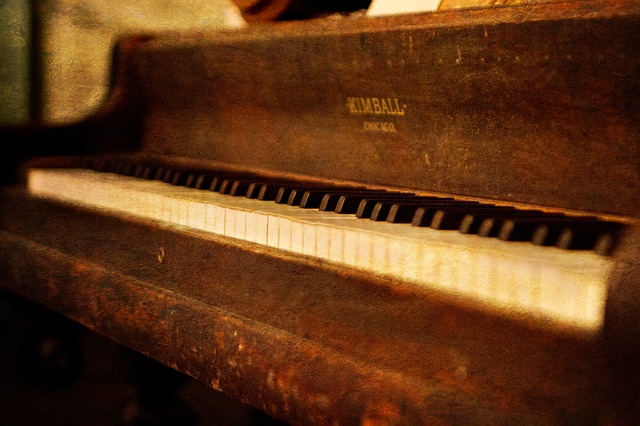Whether you play the piano yourself or not, the benefits of investing in one could be music to your ears. Though many piano owners dispose of their old, unwanted instruments, the right piano for the right price could prove the perfect investment.
The number of pianos is in decline
A few years ago, the press had a collective outburst about the fate of thousands of vintage pianos. The BBC published “Will your piano end up in the dump?”, which convincingly answered that question in the affirmative. The New York Times published “For More Pianos, Last Note Is Thud in the Dump”, which opened with haunting descriptions of the places “pianos go to die”. (Dumps, if you hadn’t guessed.)
These pessimistic piano think-pieces don’t appear to be based on solid numbers. Instead, the authors spoke to piano owners and expert piano movers, recycling and refurbishing trades. Their conclusions are undoubtedly negative. Thousands of pianos are going to waste — either being broken apart for the wood to be put to better use, or simply sent to those ever-threatening piano graveyards. Unlike digital pianos on MusicCritic that are made mostly of plastic and electronics, acoustic pianos are very delicate and need regular care. They add a feeling to a room. Acoustic pianos also keep the their value significantly better than their digital counterparts
This is a shame in itself, as many pianos are beautiful objects. Built before the era of planned obsolescence, there are countless vintage pianos which were crafted to last for many years, and to look and sound exceptional for their entire lifespan. This makes the piano graveyards of our society just that little bit more depressing.
As many of expert piano movers and disposal experts admitted in their interviews, though, despite all their redeeming qualities, many of these pianos are financially worthless, and they take up an excessive amount of room in the homes of a public which is proportionally less piano-literate than any before it.
Alongside the destruction of many older pianos, fewer pianos are being sold than ever before. Associated Press reported that 30,000 to 40,000 pianos are now sold annually in the USA. In 1909, that figure was 364,500 — that’s one thousand pianos a day. The piano’s decline in popularity could be put down to this generation’s preference for the instant-gratification available from mobile phones and tablets, combined with a piano’s expense. Even though buying a piano is so unpopular, it can actually be a sound financial investment. You might try Essex upright piano – get the price here.
Why are pianos still a great investment?
After the initial hysteria over piano deaths died down, one expert had a more positive outlook. Richard Reason, owner of piano auction service Piano Auctions in Bedfordshire, told the Telegraph: “If you can buy a sought-after piano which has a good name and quality build, you are buying a recession-proof investment.”
So what exactly is a “good name” piano with a “quality build”? The safe bet answer appears to be Steinway, you can buy a Steinway grand piano here. Steinway pianos have all the hallmarks of a product that is bound to keep its value. They are handmade, for one, eschewing the modern mechanical production lines that many rival manufacturers use. And the designers take care to give the pianos a classic look.
Between 1976 and 2001 the Steinway Model D Concert Grand Piano doubled in value. Adjusted for inflation that’s a 2.9% increase year on year. That’s better than other luxury items like Rolls-Royce Silver Seraphs or cases of Dom Perignon.
Piano investment tips
As with any investment, there are many things to bear in mind should you choose to invest in a piano.
- Choose the piano model carefully While the above study proves Steinways are a safe bet, taking a chance on a lesser known but high quality manufacturer could be even more worth your while.Once you settle on a make and model, you will need to transport the piano from the seller’s premises to your home (or office or concert hall). The process of moving a piano, particularly a large one, is difficult and can cause damage to the model, thereby lessening its value and ruining your investment.
- Transport the piano with professionals If you are especially concerned about keeping the instrument in pristine condition, as you should be, it is advisable to use a professional removals company. However you should only contact ones with significant experience transporting your exact piano type and the best possible equipment for its relocation; for example, AnyVan’s piano removal team have a “specialist fleet” as well as “temperature control and lifting equipment”, meanwhile G&R Removals have endorsement from the Royal Academy of Music and are “founder members of EPIMA the European Piano Movers Association”.
- Keep the piano in good conditionOnce your piano is home, you must continue to keep it in excellent condition. Try following these piano maintenance tips from Total Piano Care. For example, keep your piano away from sunlight, moisture and air currents to make sure the wood does not warp.
Finally, perhaps one of the biggest advantages of investing in a piano is the fact that you can play it. As long as you don’t hammer it too vociferously, playing your piano regularly will make it truly a joy of an investment. Who knows, perhaps you will choose not to sell it in the end after all.



 Bitcoin
Bitcoin  Ethereum
Ethereum  Tether
Tether  XRP
XRP  Solana
Solana  USDC
USDC  TRON
TRON  Cardano
Cardano  Lido Staked Ether
Lido Staked Ether  Avalanche
Avalanche  Toncoin
Toncoin